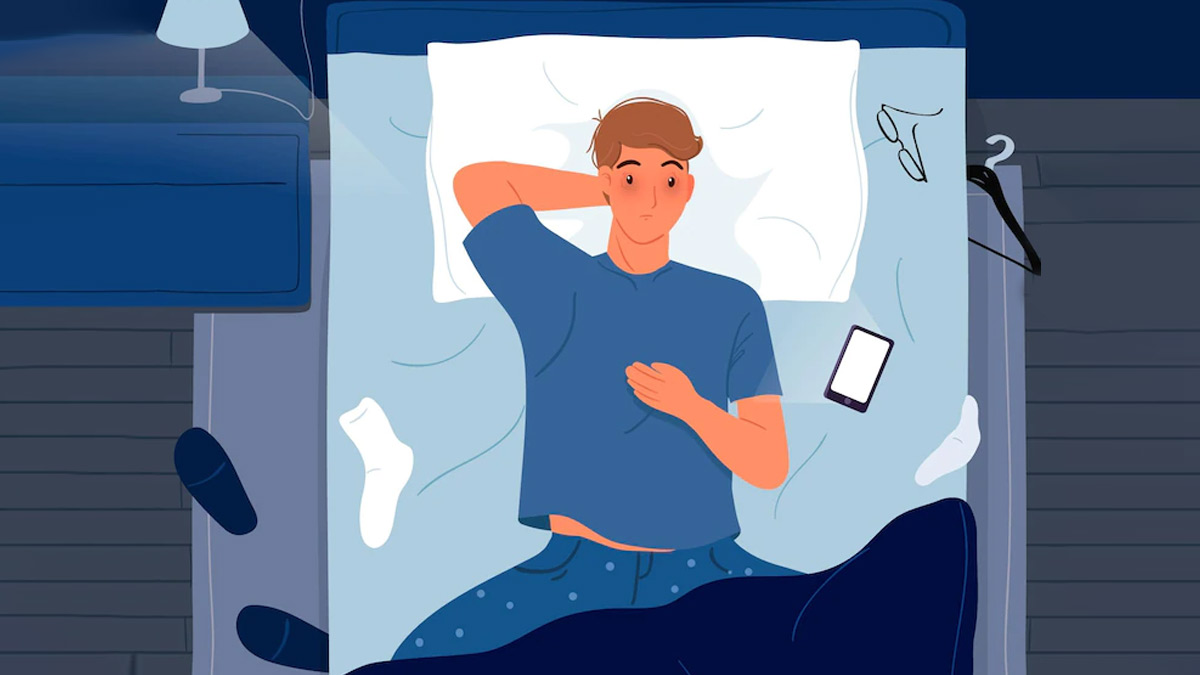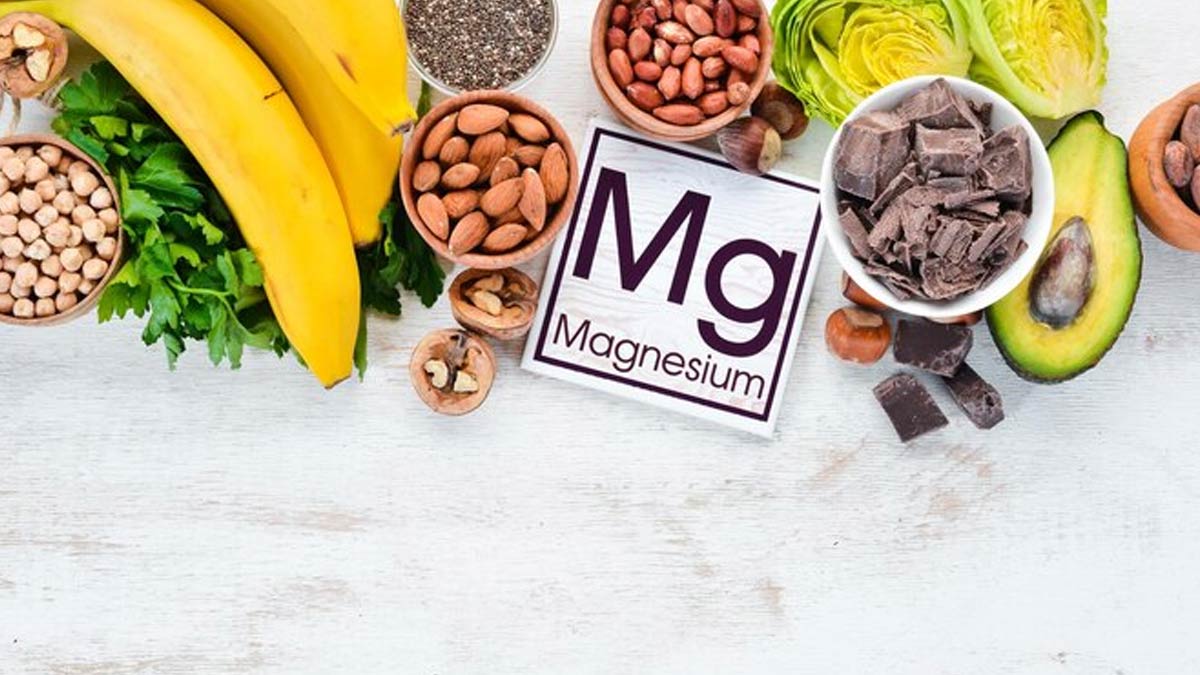
Insomnia, a common sleep disorder characterised by difficulty falling asleep, staying asleep, or awakening too early, can have a significant impact on your quality of life. While many factors contribute to insomnia, including stress, lifestyle choices, and medical conditions, nutrition plays a significant role in fostering good sleep patterns. Incorporating vital nutrients into your diet will improve your sleep quality and duration.
Table of Content:-
“Insomnia is most commonly caused by depression and/or anxiety disorders, as well as neurological conditions like Alzheimer's or Parkinson's disease. Chronic insomnia can develop from thyroid dysfunction, arthritis, asthma, or other medical diseases in which symptoms become more bothersome at night, making it difficult to get asleep or stay asleep,” said Dr VNB Raju, Consultant Interventional pulmonology and Sleep medicine, Apollo Clinic, Nizampet. Here are five crucial nutrients that can help you overcome insomnia and get a good night's sleep.
1. Magnesium
Magnesium is a vital mineral involved in numerous biochemical reactions in the body, including the regulation of the nervous system. It helps to relax muscles and calm the mind, promoting a state of relaxation conducive to sleep. Dark leafy greens such as spinach and kale, nuts especially almonds and cashews, seeds like pumpkin and sunflower, whole grains, and legumes. Incorporate magnesium-rich foods into your daily diet, and consider a magnesium supplement if dietary intake is insufficient, but consult with a healthcare provider first.

Also read: Are You Too Much Stressed? It Can Deplete These Nutrients
2. Melatonin
Melatonin is a hormone produced by the pineal gland in the brain that regulates sleep-wake cycles. It signals to your body that it's time to sleep, helping to synchronise your internal clock with the external environment. Tart cherries and tart cherry juice, walnuts, tomatoes, and grains like oats and barley.
Consuming melatonin-rich foods in the evening can help promote the natural onset of sleep. Melatonin supplements are also available but should be used under medical supervision.
3. Tryptophan
Tryptophan is an essential amino acid that the body uses to produce serotonin and melatonin. Serotonin helps regulate mood and sleep, while melatonin directly influences sleep patterns. Turkey, chicken, dairy products, milk, cheese, yoghourt, eggs, nuts, seeds, and soy products. A small tryptophan-rich snack, such as a turkey sandwich or a glass of warm milk, can be particularly effective in the evening.
4. Vitamin D
Vitamin D is crucial for overall health and has been linked to the regulation of sleep. Low levels of vitamin D are associated with sleep disorders, including insomnia. Sunlight exposure is the primary source of vitamin D. Dietary sources include fatty fish (salmon, mackerel, sardines), fortified dairy and plant-based milk, egg yolks, and fortified cereals. Aim for regular, safe sun exposure and include vitamin D-rich foods in your diet. A vitamin D supplement may be necessary if levels are deficient, but seek advice from a healthcare provider.
5. Calcium
Calcium plays a role in the production of melatonin. It helps the brain use tryptophan to manufacture melatonin, thus supporting sleep regulation. Dairy products (milk, cheese, yoghourt), leafy greens (broccoli, kale), fortified plant-based milks, and almonds. Ensure a consistent intake of calcium-rich foods, particularly in the evening, to support melatonin production.
6. Vitamin B6
Vitamin B6 helps convert tryptophan into serotonin and melatonin. It also plays a role in immune function and brain health. Fish (salmon, tuna), poultry, potatoes, bananas, chickpeas, and fortified cereals. Include a variety of vitamin B6-rich foods in your diet to support the synthesis of sleep-promoting hormones.
7. Omega-3 Fatty Acids
Omega-3 fatty acids, particularly EPA and DHA, have been shown to improve sleep quality and reduce the risk of sleep disorders by regulating the production of serotonin. Fatty fish (salmon, mackerel, sardines), flaxseeds, chia seeds, walnuts, and algae-based supplements. Regularly consume omega-3-rich foods and consider an omega-3 supplement if dietary intake is low, after consulting with a healthcare provider.

8. Potassium
Potassium helps maintain proper muscle function and can prevent muscle cramps that might disrupt sleep. It also aids in the regulation of blood pressure. Bananas, sweet potatoes, avocados, spinach, and white beans. Incorporate potassium-rich foods into your daily meals to help maintain muscle relaxation and overall sleep quality.
9. Iron
Iron deficiency is linked to restless legs syndrome (RLS), which can significantly disrupt sleep. Ensuring adequate iron intake can help mitigate RLS symptoms and improve sleep. Poultry, fish, lentils, beans, and fortified cereals. Include a variety of iron-rich foods in your diet, and if you suspect an iron deficiency, seek advice from a healthcare provider for appropriate supplementation.
Also read: Nutrients That Help Boost Brain Health And Foods That Can Provide Them
10. Zinc
Zinc plays a role in the regulation of sleep and mood. It can enhance the calming effect of magnesium and help improve sleep quality. Meat, shellfish, legumes, seeds (pumpkin and sesame), nuts, dairy products, and whole grains. Ensure a balanced intake of zinc-rich foods to support overall sleep health.
Incorporating sleep-promoting elements into your diet will help you manage and alleviate the symptoms of insomnia. However, it's essential to maintain a balanced diet and a healthy lifestyle overall. If sleeplessness persists, see a doctor to rule out any underlying medical concerns and discuss other therapy options. Paying attention to your food intake will help you achieve greater sleep and overall health.
Also watch this video
How we keep this article up to date:
We work with experts and keep a close eye on the latest in health and wellness. Whenever there is a new research or helpful information, we update our articles with accurate and useful advice.
Current Version